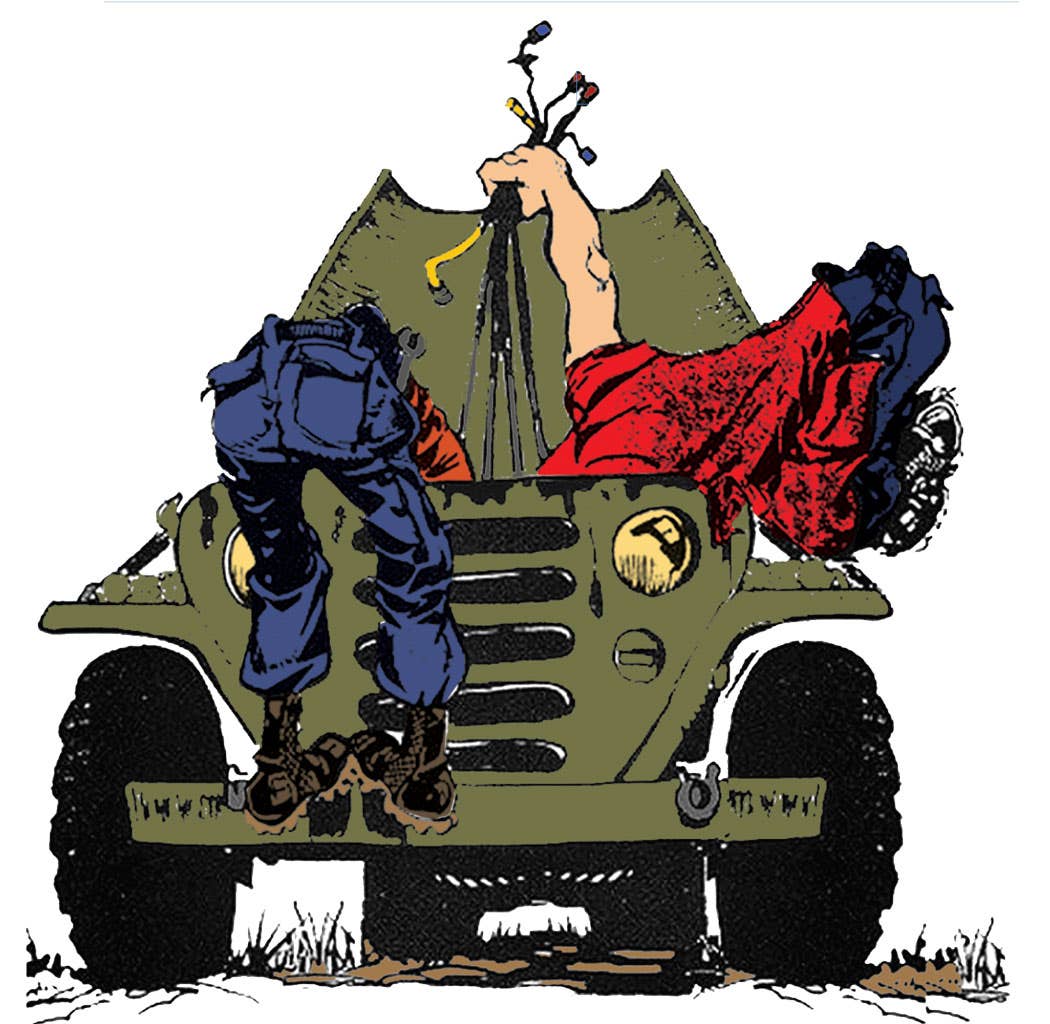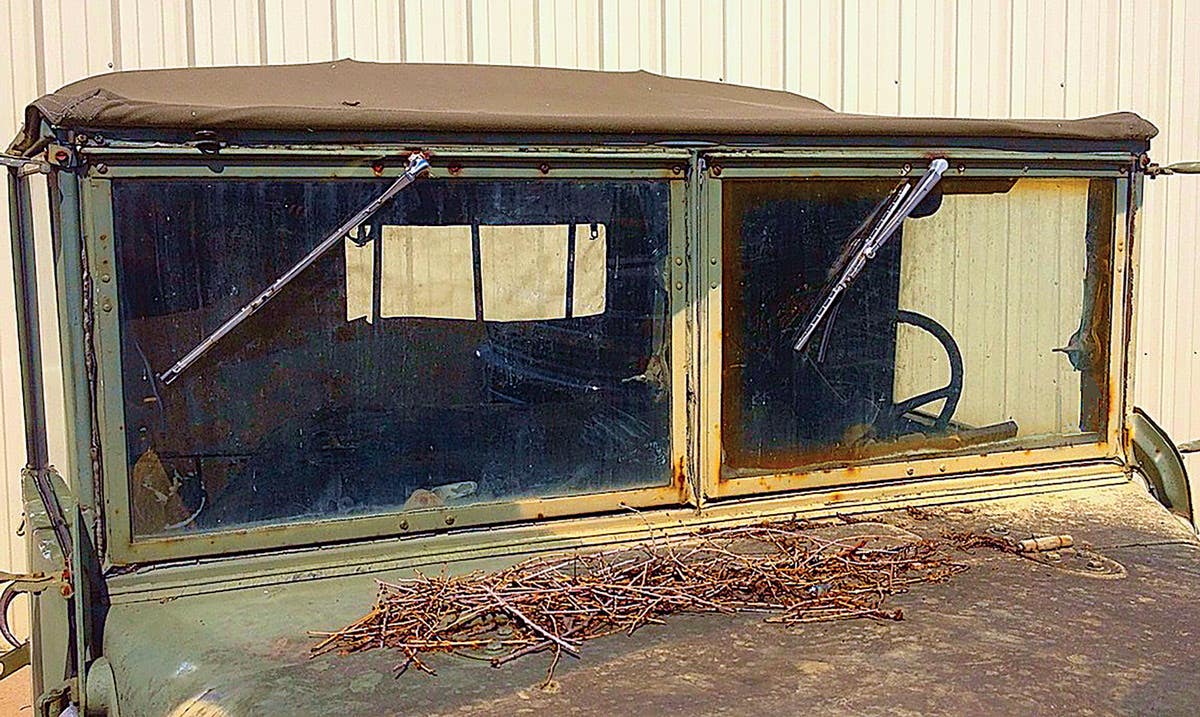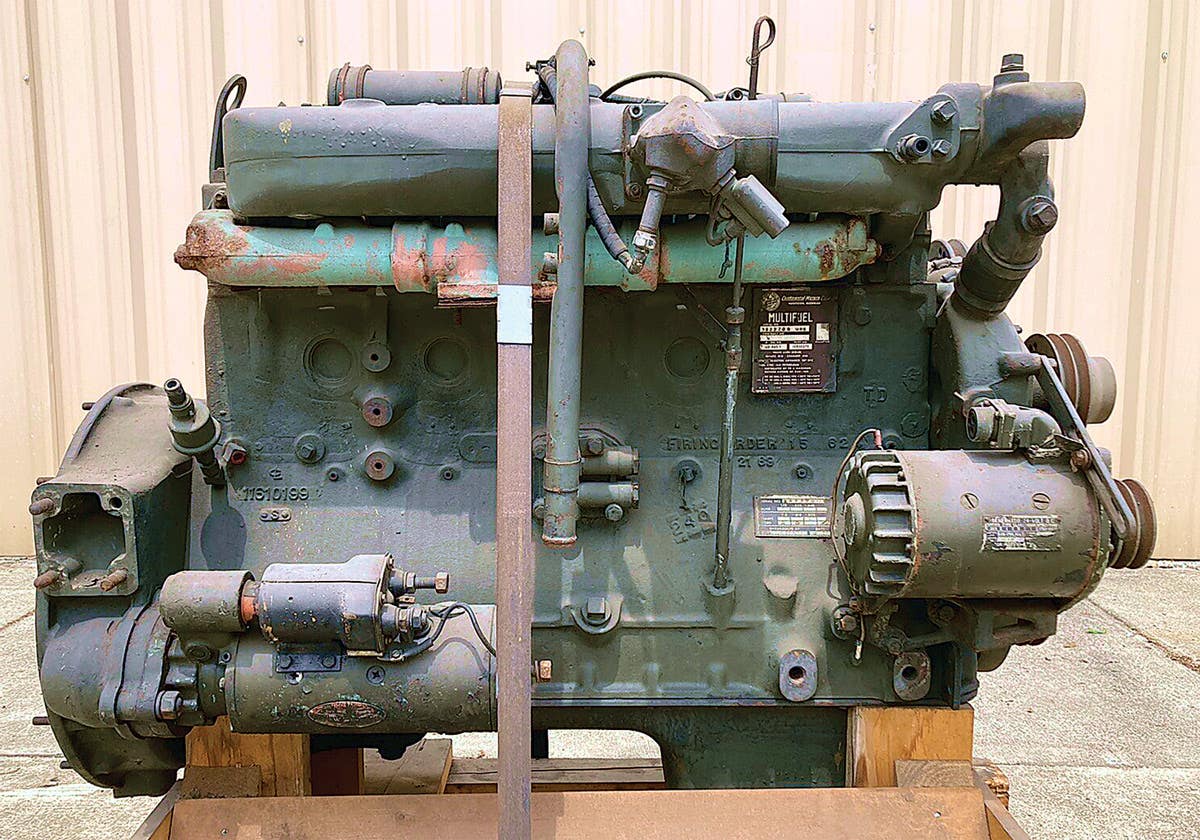Du bist ja ein Mensch!
When I lived in Germany years ago, I spent a lot of time looking for military relics. I repeated the phrase, “Hast Du Kriegsache” (Do you have any war relics?)…
When I lived in Germany years ago, I spent a lot of time looking for military relics. I repeated the phrase, “Hast Du Kriegsache” (Do you have any war relics?) as I explored book stores, second hand shops and antique markets. That is, until one morning in a small shop down a narrow alley in Trier.
Languages require fineness
Actually, my life in Germany started off rather rocky. Though I had spent years studying the language and considered myself fluent, I was in for an abrupt realization of my language inadequacies. The day I landed in Luxemburg, I gathered my few bags and was able to find my way to the train station. After buying my ticket to Trier, the city where I was going to call “home,” I walked to the platform where passengers boarded trains bound for all points of Europe.
Even though I was certain I was in the correct area for the train to Trier, I thought I would flex my linguistic muscle. Spotting a kindly looking, older woman at the end of our boarding area, I approached her and asked, “Entschuldigen Sie, bitte. Fährt dieser Zug nach Trier?” (Pardon me, please. Does this train travel to Trier?). She looked at me, glanced down at my suitcases and returned her look to my eyes before saying in a heavily accented, but impeccable, English, “What language are you trying to speak, young man?”
I was crestfallen. No, I was crushed. Here I was, about to embark on a life in a foreign country believing I was fluent in the language, only to realize, I couldn’t make myself understandable to a person standing at a train station. All the confidence that accompanied me across the ocean disappeared into the Luxemburg breeze. Ultimately, the train arrived, I boarded, and when asked, handed my passport to the appropriate officials. About 45 minutes later, I arrived in the city that would become my home. Whereas I had been nervous about this big change in life before I asked the lady on the platform my question about trains, now I was just plain scared.
It took months of interacting with people who lived in my building, at the stores or at the University where I continued my studies in German and history, before I regained most of the confidence I had lost on the Luxemburg rail platform. Honestly, I found that with the more beer I drank, the more fluent I became… so my memories of those first few months in Germany are a bit foggy.
Eventually, I overcame my fear of speaking to other Germans in public. I was able to converse with clerks in stores, with the bus driver and even talk myself out of some dicey late night “Bierstube” (tavern) confrontations. Rediscovering the ease to communicate wherever I went, I returned to my foundation interest: Collecting militaria.
I went to relic fairs, antique markets and made contacts with other collectors. I even placed a classified in Trier’s newspaper indicating that I would purchase military relics. I became quite adept at buying and selling in a foreign language. My confidence soared.
That is, until one day when I entered a small shop in Trier. I had seen it many times, but it was always closed. For some reason, on a Tuesday morning, I decided to walk down the small lane to check again if the store was open. To my surprise, the door heaved open when I pushed on it. I walked in to the sound of a bell ring overhead that announced a customer had entered. An elderly lady appeared from a door behind a glass case that contained a few daggers and some insignia. Glancing up from the relics, I asked, “Hast Du Kriegsachen zum Verkaufen?” (Do you have military relics for sale?).
The lady looked me straight in the eyes before saying, “I understand from your accent you are an American. You may not, however, ‘Duzen’ me until I inform you that it is your privilege.” Perhaps, bolstered by the confidence I had assembled over the past couple of months living in the city, I had committed a fatal linguistic error: I had used the informal form of “you” (“Du”) with a person I did not know. Worse yet, the person was my elder.
This might not seem like a big deal to non-German speakers, especially Americans who often assume a familiarity with total strangers. With Germans, however, this slight twist of language forms the foundation of their interaction with others: A person remains at a safe, formal distance until invited into a closed, intimate circle. This is all communicated through the simple use of the formal version of the personal pronoun, “you” (“Sie”) or the informal “Du.” We don’t have an equivalent that differentiates between formal and informal preferences in English.
After apologizing and fumbling about, I beat a hasty retreat from the old woman’s shop—never to return. I had just received another very important lesson in the delicacy of language. More importantly, I learned there are some words in German that just don’t translate to English.
Du bist ja ein Mensch!
A great word in German that has no English equal is “doch.” By simply saying “Doch,” you can negate someone else’s statement. “You don’t have any money?” can be answered simply with “Doch!” indicating that, yes, indeed, you have money. When I would ask my little girl if it was her bedtime, she would reply with “Doch!” thereby, informing me that it was, most certainly, NOT bedtime. “Doch” is a great word that I continue to use in my day-to-day English.
Another one of those great words that doesn’t have a solid English equal is “Mensch.” On the surface, the word does translate very easily to “human being,” but that isn’t the most common usage. If you do a “solid” for a German, they might reply with “Du bist ja ein Mensch.” They are not commenting on your species, but rather, saying you are a person of integrity and honor.
I have always said military collectors are some of the nicest folks around. In particular, I have found historic military vehicle collectors to be consistently welcoming, helpful and generous with the public and others in the hobby. I witnessed this the other day.
Many of you have read in our enewsletter and magazines, that an important member of our community is battling leukemia. Gary Wirth of Hastings, Minn., has restored more 1st Place National MVPA winning vehicles than any other human being. Though he is one of the best metal and paint guys around, he is, without question, a Mensch. He answers every question with a smile, no matter how he is feeling or how busy he might be. He gets paid for his work, but always delivers quality beyond what he bills. And, he just simply loves driving military vehicles and sharing the joy with others. Er ist ja ein Mensch!
But that isn’t what struck me the other day. Though I was attending a benefit to raise money to support Gary’s family during his treatment of his illness, it wasn’t Gary’s actions that struck me as much as a couple of other guys.
Many know John Bizal as the owner of Midwest Military. In addition to being an expert on WWII Dodges, John is the consummate business person. When you call him at work, you will often encounter a voice that sounds stressed and busy. That’s probably because John is just that—busy and stressed. Running a full-time historic military vehicle business to support his family takes a lot of commitment. He and I share the expression with each other on the phone, “Time is money!” To some, he may come off as brash, but like just about every person I meet in the hobby, he is willing to help another person discover the joy of restoring and driving historic military vehicles.
Not as many probably have met John Currie, but he is the newsletter editor of the MVPA Red Bull Chapter’s newsletter. With a flair for artistry and drama, John has promoted the hobby throughout Minnesota and beyond. Some folks may not be comfortable around a guy who has long, flowing salt-and-pepper hair who wears a European-style scarf around his neck, but John knows his military vehicles and works hard to show others how they can enjoy the hobby as well.
After I watched these two guys at Gary’s benefit party, however, the only word I can find to accurately describe them is “Mensch.” I knew that Currie had been working hard with other volunteers to organize the party and acquire items for fundraising auctions as well as using his printing company to design and disseminate information about the event. I didn’t know, however, until the night of the event that John Bizal was one of the puppet masters pulling all of the strings to organize the fundraising efforts.
I don’t know all of the details, but allow me to say, in addition to the money raised that evening for Gary’s family, there has been a foundation established, a Facebook page initialized and a sweepstakes of a restored military trailer being legally conducted.
Though all of that is truly admirable, they are not what earned the two Johns Mensch-status. No, not at all. These two guys—prideful in their own ways—decided to make a sacrifice for the benefit of Gary’s foundation. They put themselves—or I should say—they put their hair where their mouths were. (See photos at end of blog.)
In turn, each stood on the stage and declared, “I am proud of my head of hair, but if you people will pay, I will have it shaved off in deference to my friend Gary.” With that, the bidding began—John Bizal stood up first. My partner, Diane, wasted no time running to the stage to tuck a couple of twenties in John’s shirt. Others followed with bids from the floor. Helpers walked the floor with upturned M1 helmets collecting donations. When all the money was counted, Bizal’s “reserve” had been met. With more than $2000 collected, he reluctantly allowed the cloth be tied around his neck and succumbed to the clippers. In fact, the frenzy to shave John’s head renewed, and people made offers from the floor to make a pass at his flowing locks. One by one, for a hundred dollars or so, friends and family clipped him down to a cue ball status.
When it was over, bidding renewed. This time with the goal of shaving John Currie’s noggin. I don’t know if it was a greater sacrifice for him than it was for Bizal, but he certainly threw a better fit! He was dramatic, pathetic and belligerent, but we all knew what the outcome would be. That actor-like perfect hair would soon be in piles on the stage as the crowd cheered its removal!
I would have never guessed these two guys would step up for their friend the way that they did. They gave their time, their money and even their hair to support a fellow member of the collecting hobby. Gary is a dear friend to many of us. And there are a multitude of ways we support him and his family through this very difficult and costly time in their lives. But man, watching Bizal and Currie give of themselves, choked my emotions. I didn’t hear the cheers, hardly even noticed Diane tuck money into John’s shirt… I just watched two men try whatever they could to help their buddy.
When the party was over, Diane and I walked to our car. The only sound was the clinking of the several bottles of wine we bought during the silent auction. Finally, Diane broke the silence, “Well, what do you think?” I was still pretty emotional. All I could say was, “Those two guys are straight-up Mensch.”
John Adams-Graf
Editor, Military Vehicles Magazine and Military Trader
Enjoy the photos below. For more info on the efforts to support Gary through these times of treatment, check out our story with links at:
John Adams-Graf ("JAG" to most) is the editor of Military Trader and Military Vehicles Magazine. He has been a military collector for his entire life. The son of a WWII veteran, his writings carry many lessons from the Greatest Generation. JAG has authored several books, including multiple editions of Warman's WWII Collectibles, Civil War Collectibles, and the Standard Catalog of Civil War Firearms. He is a passionate shooter, wood-splitter, kayaker, and WWI AEF Tank Corps collector.







